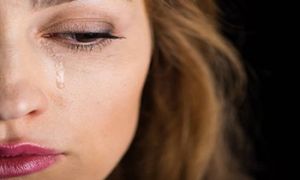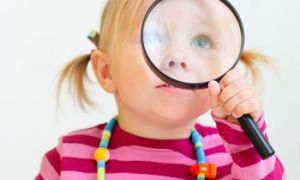

To support children achieve learning outcomes from the MTOP Framework Version 2.0, the following list gives educators examples of how to promote children's learning in each individual learning outcome. These can be used when assessing children's learning, critically reflecting on the experiences planned, strategies to implement for each learning outcome and more. It also encourages and promotes each individual outcome throughout the early childhood setting.
This is a guide for educators on what to observe under each sub-learning outcome from the MTOP Framework when a child is engaged in play and learning. Educators can plan experiences for the curriculum and gain an understanding of how children can achieve each individual outcome.
The following are 8 Principles that reflect contemporary theories and research evidence concerning children and young people’s play, leisure and learning and place-based and relational pedagogies.
MTOP Learning Outcomes Posters Version 2.0 displays the main MTOP Learning Outcomes and the sub-outcomes. They can be used to display within the service or used as a reference for documentation and planning. The Learning Outcomes are to be used to reflect on children’s learning and focus on what a child can achieve.
The following lists the sub-outcomes, examples of evidence that children can achieve each sub-outcome and how educators can promote and help children to achieve MTOP Learning Outcome 4 - Children And Young People Are Confident And Involved Learners V2.0.
The following lists the sub outcomes, examples of evidence that children can achieve each sub outcome and how educators can promote and help children to achieve MTOP Learning Outcome 3: Children Have A Strong Sense Of Wellbeing V2.0.
The following lists the sub-outcomes, examples of evidence of when children can achieve each sub-outcome and how educators can promote and help children to MTOP Outcome 2: Children And Young People Are Connected With And Contribute To Their World V2.0.
 As an Educator in Australia, your pay rate falls under the Children’s Services Award 2010. This award states the minimum amount that an employer can… Read More
As an Educator in Australia, your pay rate falls under the Children’s Services Award 2010. This award states the minimum amount that an employer can… Read More
 When working as a qualified Early Childhood Teacher (with a university degree) within a service, your rate of pay will come from the Educational Services… Read More
When working as a qualified Early Childhood Teacher (with a university degree) within a service, your rate of pay will come from the Educational Services… Read More
 When working as a Diploma Qualified Educator your pay rate is from the Children's Services Award 2010. This Award states your minimum rate of pay… Read More
When working as a Diploma Qualified Educator your pay rate is from the Children's Services Award 2010. This Award states your minimum rate of pay… Read More
 When working as a Cert 3 Qualified Educator, your pay rate is from the Children's Services Award 2010. This Award states your minimum rate of… Read More
When working as a Cert 3 Qualified Educator, your pay rate is from the Children's Services Award 2010. This Award states your minimum rate of… Read More
 Educational Leaders play a crucial role in their early childhood service by ensuring that the educational program aligns with best practices and supports the holistic… Read More
Educational Leaders play a crucial role in their early childhood service by ensuring that the educational program aligns with best practices and supports the holistic… Read More
 In early childhood education and care, ratios are more than a technicality—they are a frontline safeguard. Every child deserves responsive supervision, emotional connection, and developmental… Read More
In early childhood education and care, ratios are more than a technicality—they are a frontline safeguard. Every child deserves responsive supervision, emotional connection, and developmental… Read More
 With the new national child safety reforms kicking in on 1 September 2025, early childhood services like yours have a real opportunity to lead the… Read More
With the new national child safety reforms kicking in on 1 September 2025, early childhood services like yours have a real opportunity to lead the… Read More
 Here’s a comprehensive Mobile Phone and Smart Watch Policy tailored for early childhood education and care (ECEC) services in Australia, aligned with the latest 2025… Read More
Here’s a comprehensive Mobile Phone and Smart Watch Policy tailored for early childhood education and care (ECEC) services in Australia, aligned with the latest 2025… Read More
 The Sea of Fish Challenge is a national initiative that invites children, educators, families, and communities to create and display fish artworks as a symbol… Read More
The Sea of Fish Challenge is a national initiative that invites children, educators, families, and communities to create and display fish artworks as a symbol… Read More
 Across the early childhood education and care sector, educators are sounding the alarm: current staffing ratios are insufficient to deliver safe, meaningful, and developmentally appropriate… Read More
Across the early childhood education and care sector, educators are sounding the alarm: current staffing ratios are insufficient to deliver safe, meaningful, and developmentally appropriate… Read More

Ensuring families feel informed and engaged is more than a compliance checkbox—it’s the foundation of...
See more...
In the quiet hum of a weekday morning, something felt off. Preschool doors opened, but...
See more...
Visual learners best process information when it is presented to them in a visual forms...
See more...© 2009-2025 Aussie Childcare Network Pty Ltd. All Rights Reserved.

